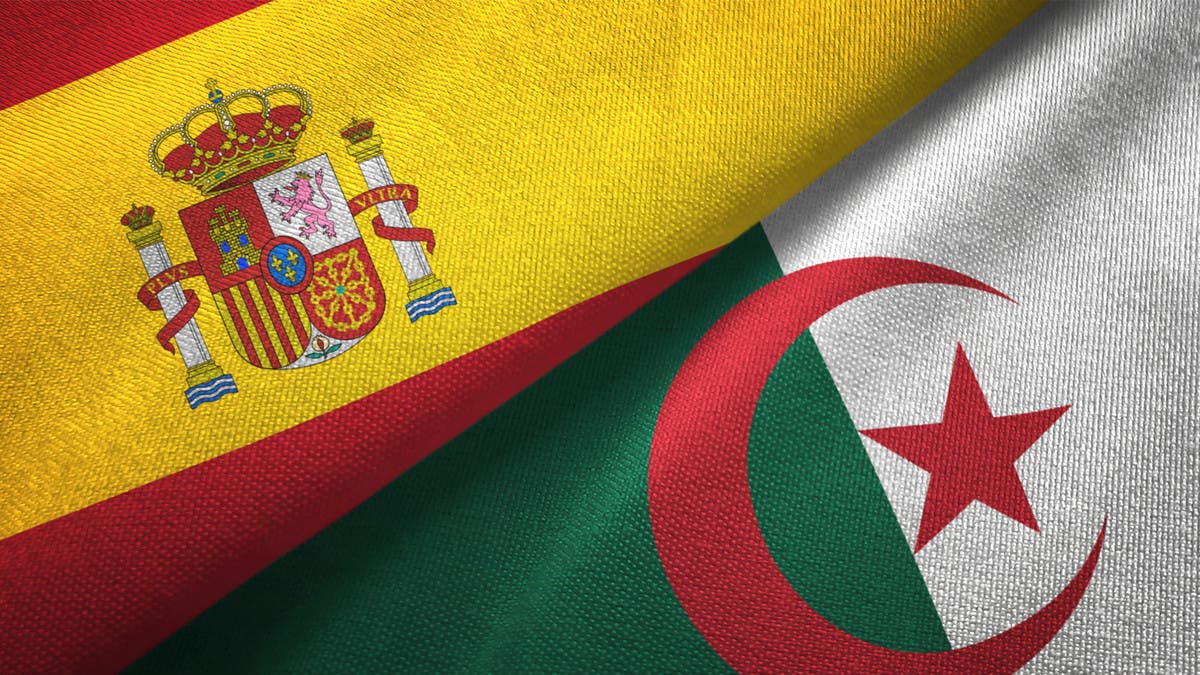Algeria suspended a 20-year friendship treaty with Spain this week and moved to limit trade with its northern neighbor, raising more questions about the potential impact on the long-established gas business between the two countries.
The row over Madrid’s stance on the disputed territory of Western Sahara comes as North African gas supplies to Europe have grown increasingly important this year in light of Russia’s invasion of Ukraine.
While gas continues to flow as normal, any disruption would further rattle stretched energy markets where wholesale prices have soared. Algeria already warned Spain in April it could terminate supplies if Madrid sold on any Algerian gas to other countries.
Here are details of the energy relationships between the two countries:
What has Algeria done?
Algeria’s national banking association ordered a stop to payments to and from Spain, which, according to Algerian sources, affects all trade apart from gas supplies.
Algerian President Abdelmadjid Tebboune has previously said he would not break gas supply contracts over the row.
How important is Algeria’s gas to Spain?
Spain imports “virtually all” of its gas requirement, according to the International Energy Agency (IEA).
Algeria supplied a quarter of Spain’s gas imports in the January to April period, although that was down from nearly half a year earlier after Algiers stopped using a pipeline that crosses Morocco last October.
Gas flows through the undersea Medgaz pipeline, in which Algeria’s state-owned Sonatrach owns 51 percent and Spanish gas group Naturgy 49 percent. It also arrives by boat in the form of liquefied natural gas (LNG).
The United States was Spain’s biggest gas supplier in first four months of the year, ahead of Algeria and Nigeria.
Gas-fired combined cycle plants and co-generation produced around 27 percent of the electricity generated in Spain between January and April, according to data from grid operator Redeia.
Which Spanish firms have relationships with Sonatrach?
Naturgy has long-term supply contracts with Sonatrach. When these were renewed in 2018, they covered 30 percent of Spain’s consumption. The pair agreed to amend the contracts in 2020 after the COVID-19 pandemic destroyed demand globally, but did not disclose the new terms.
Fellow Spanish producer Repsol has stakes in four oil and gas projects in Algeria. It operates the Reggane Nord gas fields, which have a full capacity of 8 million cubic meters per day, alongside Sonatrach and Wintershall DEA.
Cepsa, a Spanish refiner controlled by Abu Dhabi’s sovereign wealth fund, has developments in three Algerian oil fields and one gas field.
What does Spain’s government say?
Spanish Energy Minister Teresa Ribera was asked by an interviewer on Onda Cero radio whether she was confident Sonatrach would continue to honor its contracts.
She replied: “The commercial relationships that exist between Sonatrach, which sells gas, and Spanish companies that buy gas are contractual, commercial relationships and I trust that will stay as it is.”
“If not, it would be a different, more complex problem to be resolved not through diplomacy but probably through arbitration or the courts. For now, I have the utmost confidence,” she added.
Ribera referred to “a complicated process of price revision between the Algerian distributor and Spanish buyers” adding, “nothing makes us think this could collapse unilaterally because of a decision by the Algerian government.”
Sonatrach did not respond to Reuters requests for comment.
What do the companies say?
Naturgy says it is “working normally with its historical Algerian partner, Sonatrach.”
Chief Executive Francisco Reynes told La Vanguardia newspaper last week it had contracted gas supplies with Sonatrach until 2032, with provisions to review prices every three years.
Talks on the latest revision have been underway since November and Reynes said Sonatrach’s top executive had already said prices would rise.
“This has nothing to do with the invasion of Ukraine, or with Morocco,” he told the newspaper.
“Reaching an agreement in the current price scenario is not easy, because the references change every day. No one doubts that gas is more expensive today than it was three years ago.”
Repsol and Cepsa declined to comment on the trade curbs.
Read more:
Algeria to halt gas exports to Spain via Morocco
Spain investigates minister over events sparking Morocco row
Algeria urges Morocco to quit Western Sahara buffer zone


 World3 years ago
World3 years ago
 World3 years ago
World3 years ago
 Business11 months ago
Business11 months ago
 Entertainment7 years ago
Entertainment7 years ago
 World7 years ago
World7 years ago
 Entertainment7 years ago
Entertainment7 years ago




